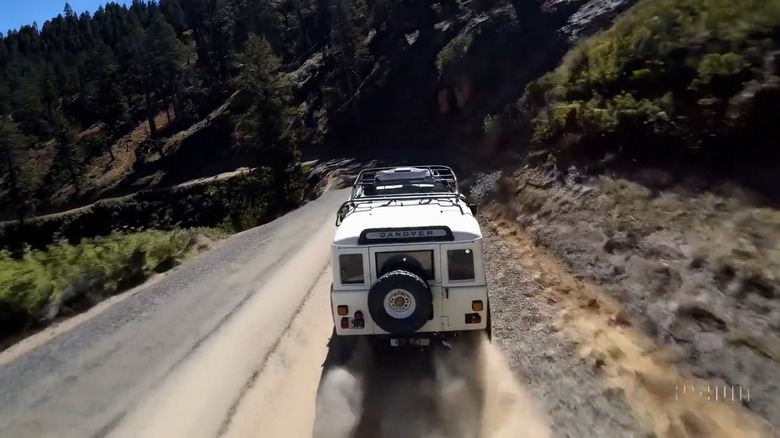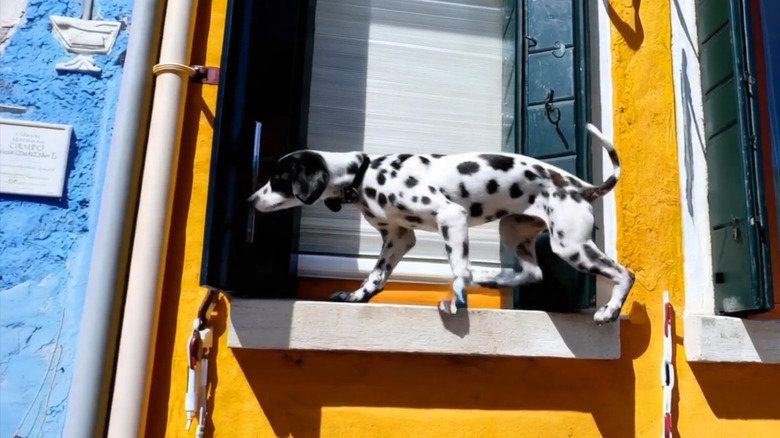Here's Why You Can't Get Access To OpenAI's Sora Yet
If you've heard about OpenAI's new Sora model, which generates videos from text prompts, you may be wondering how you can try it out for yourself. Unfortunately, unless you're a member of a select group, you may not be able to try out the new tool any time soon.
In a post on the OpenAI Blog, Sora was shown generating detailed, movie-like, clips based on brief prompts. This included sweeping footage of a Gold Rush-era California town, and a classic SUV tearing along a dusty mountain trail, and a woman walking down a Tokyo street. There's also more abstract examples, such as a dancing cartoon Kangaroo and two pirate ships fighting it out inside a cup of coffee.
It's not all smooth, caffeine-infused, sailing though. As with any current AI program, there are elements of jank to contend with, and these examples don't stand up to increased scrutiny. Hands are still an issue, but the video element opens up new problems. Physics appears to be something AI struggles with, and Sora hasn't quite grasped cause and effect either. Things may clip through each other instead of colliding, something could float off randomly, and in an example OpenAI itself gives: If someone bites a cookie, the cookie may not have a piece missing afterwards.
OpenAI has stated that the beta is open to "filmmakers, visual artists, and designers," but the lack of any signup process suggests that the beta is invite-only. The company hasn't listed any kind of timeline outlining plans for a public or expanded round of beta testing.
OpenAI is likely being cautious
While OpenAI may want to apply a bit more polish before releasing its new product to a wider audience, the reason for the beta being low-key is likely not related to issues with physics, faces, or crowds. Instead, it probably has more to do with an issue people have, than issues OpenAI software has.
People have already used AI to do some terrible things. We've already seen the effect on society with things like Deepfakes, and even with protections in place, people have still found ways to make ChatGPT break its own rules and generate restricted content. While asking ChatGPT to give you a crystal meth recipe can be seen as a bit of light-hearted fun, video capability takes things to a whole new level.
While, historically, there have been highly controversial books — very few works of literature cause a stir in modern society. Controversial movies, video games, and TikToks on the other hand hit the headlines regularly. AI getting animated may have a similar effect.
OpenAI has a history of playing it safe, hence ChatGPT being fairly restricted in its output, and those restrictions growing as time went on. AI-based controversies like the recent Taylor Swift photo scandal give the company even more reason to be extra careful before unleashing a powerful new tool on the world. So you will eventually have access to Sora, but you'll likely have to wait until OpenAI is confident in its safety measures.

